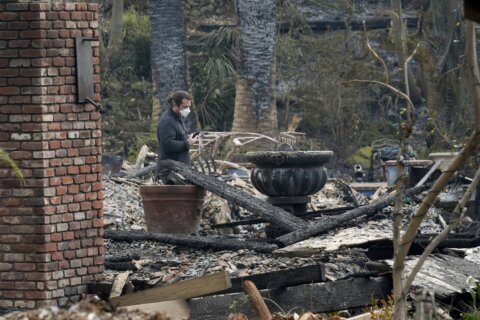Wisconsin is seeing more frequent dam failures in another sign that the storms blowing through the state are growing stronger.
Wisconsin recorded 34 dam failures from 2000 through 2023, the second-highest total for that period behind only South Carolina, the Wisconsin Policy Form said in a report released Thursday. More than 80% of the failures — 28, to be exact — happened since the start of 2018, and 18 of those happened since the start of 2020. None of the failures resulted in human deaths, the report found.
The state is home to more than 4,000 dams. Some are massive hydroelectric constructs while others are small earthen dams that create farm ponds. They’re owned by a mix of companies, individuals, government and tribal entities, and utilities.
The U.S. Army Corps of Engineers’ National Inventory of Dams lists 1,004 Wisconsin dams ranging in height from 6 feet (nearly 2 meters) to the 92-foot-tall (28-meter-tall) Flambeau dam on the Dairyland Reservoir in Rusk County.
The inventory classifies more than 200 dams as having high hazard potential, meaning failure would probably cause human deaths. Of the 34 dam failures in Wisconsin over the last 23 years, three had high hazard potential, one was a significant hazard potential, meaning a failure could cause economic loss, environmental damage and other problems, and 18 had low hazard potential, meaning failure wouldn’t result in any loss of human life and would have low economic and environmental consequences. The remainder’s hazard potential was undetermined.
Every state budget since 2009 has provided at least $4 million for dam safety work, according to the report. The funding has been enough to improve the state’s most important dams, but “a changing climate — triggering more frequent and more severe extreme rain events — could pose new and greater tests to our dam infrastructure,” it warns.
The Wisconsin Policy Forum compiled the report using data collected by the Association of State Dam Safety Officials.
Copyright © 2024 The Associated Press. All rights reserved. This material may not be published, broadcast, written or redistributed.






